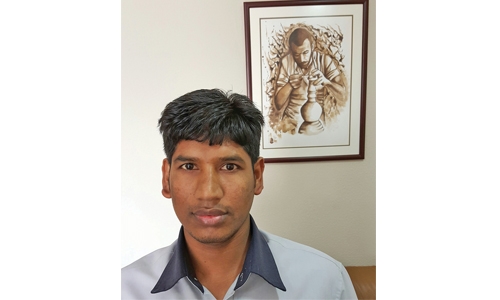Ramdan joy in Bahrain compensates for homesickness
Manama: As he was slowly chewing the succulent sweetness of the dates at the end of the first fasting day of Ramadan, for fleeting seconds Jamal was swept by a feeling of bitterness when his mind flashed to his family back home in Bangladesh.
The 26-year-old worker living in Isa Town has not seen them for almost six years now and he wished to be sitting with them, sharing the comforting spirituality and the culinary delights of such an auspicious occasion.
Ramadan is a time for great family reunions, overwhelming care and special compassion, and he longed for the days when he could share such a time with his loved ones.
He knows that it is a price to pay if he wanted to make money to ensure their future. The sacrifices have been numerous, but he has always had confidence that the situation would improve once he achieved his objectives.
Being away from the family is the only negative aspect of his life in Bahrain where he has been working for six years with a service company.
Jamal has good rapports with the people around him, and he feels that they care about him, talking to him with respect and enabling him to live and work in dignity. He has heard stories about abuses in other places, and thanked God for his good fortune in being assigned where he is.
He loves the benevolent atmosphere prevailing in Ramadan, a month for peace of mind and great altruistic deeds that reinforced his positive feelings about the place and the people.
“I love Ramadan in Bahrain,” he said. “It is not very different from what we have in Bangladesh, but it also has its special charms here.”
“The routine day is the same. I start the day with the pre-dawn prayers, then I rest a bit and head to work. I spend the day at the workplace where we have a mosque and I perform my prayers there. I go back home before sunset, and here I have the choice of preparing my own iftar, buy a ready-made meal from a nearby restaurant or go to a mosque and join dozens of people who help themselves to the food offered by benevolent people and charitable souls,” he said. He usually prefers to prepare his own food.
Observing the fast is not challenging at all, Jamal said, explaining that his work is mainly indoors, which allows him to evade the scorching sun and feel more at ease.
“Cooking is always interesting. It is quite simple and I am delighted with whatever I can prepare.”
Amir, another Bangladeshi, said that in his country, the breaking of the fast usually starts with eating dates and drinking a lemon sorbot, the sweet lemon water that helps regain some of the lost energy. They are often followed by eating apples, oranges or cucumbers.
It is time then for the fried snacks that are eaten along with muri (puffed rice) and chola, (curried, cooked chickpeas).
The snacks are mainly samosas, dap puri (lentil pastry), piyajoo (fried lentil paste with chopped onions and green pepper), onion pakoras, meat kebabs and other varieties of fried potato, meat and chickpea/lentil.
“Quite delicious and filling,” Amir said, flashing into his coy smile.
Related Posts

